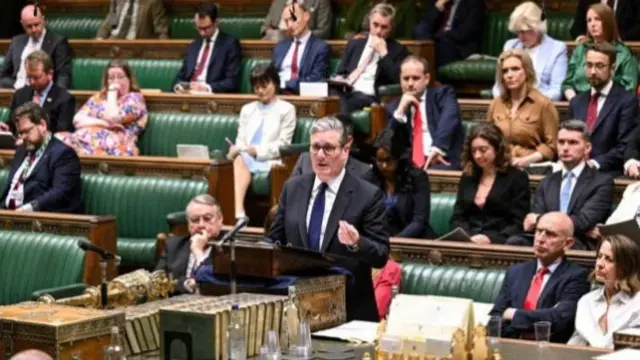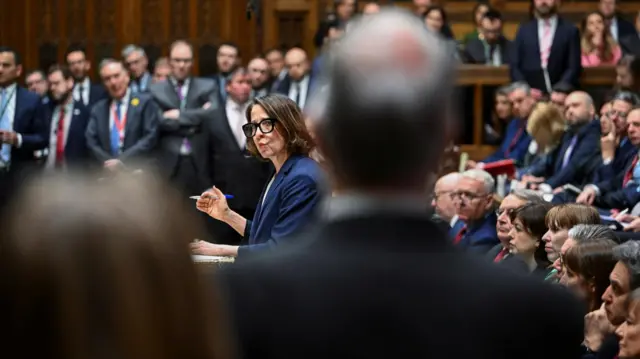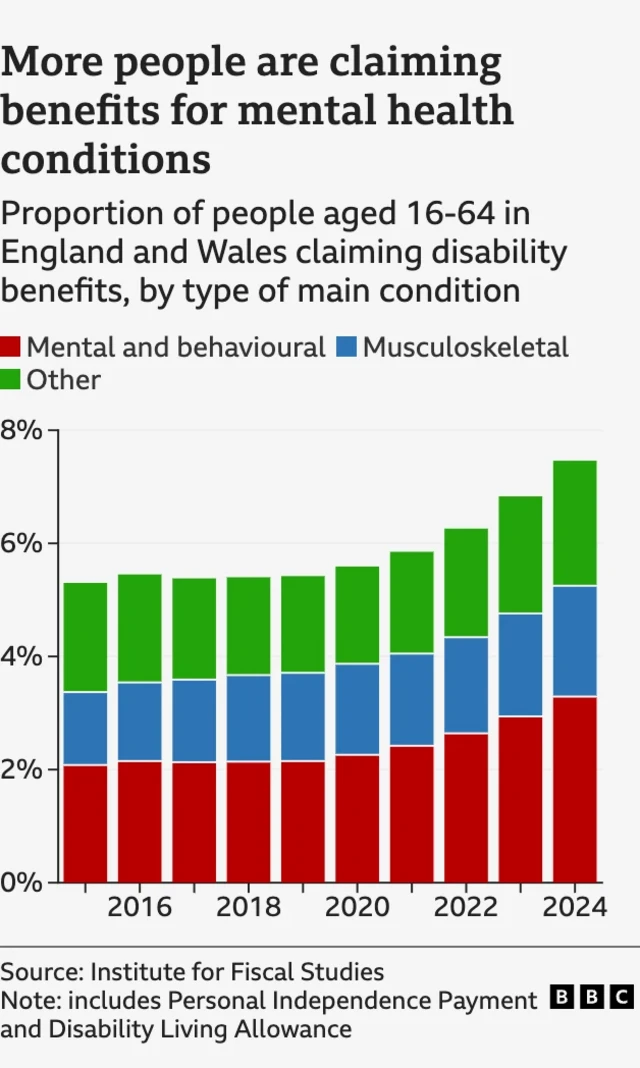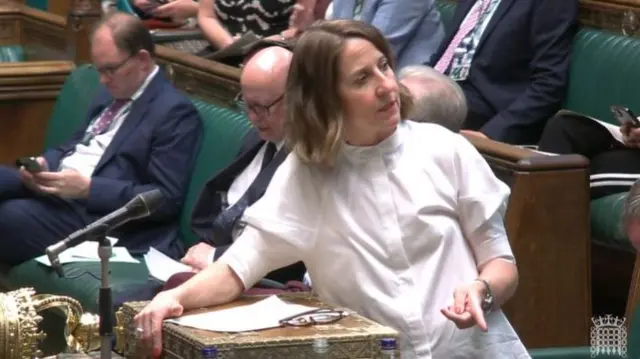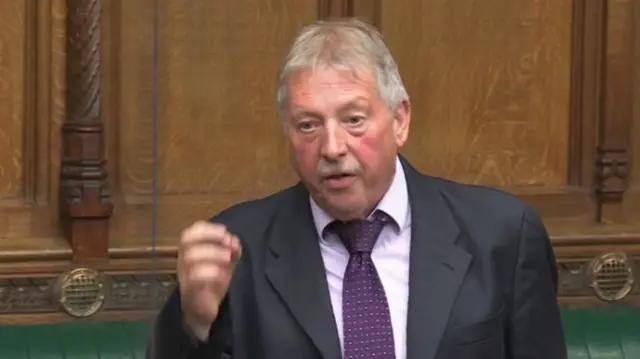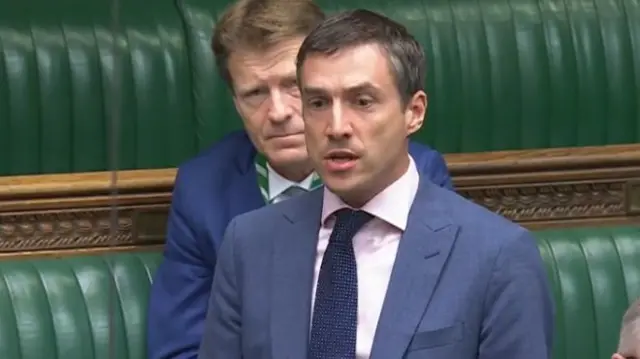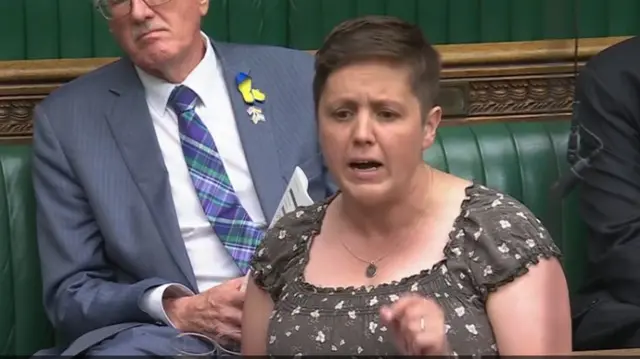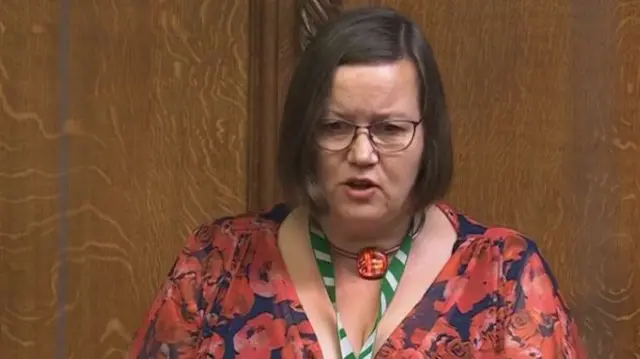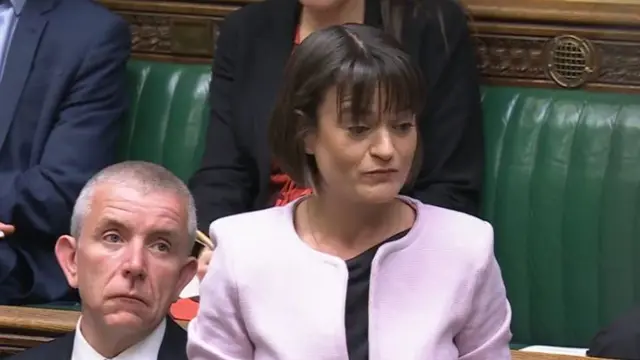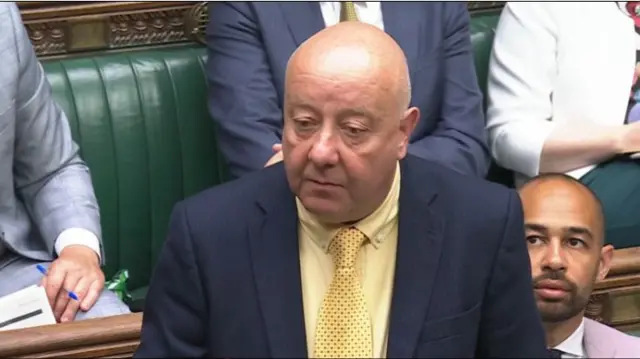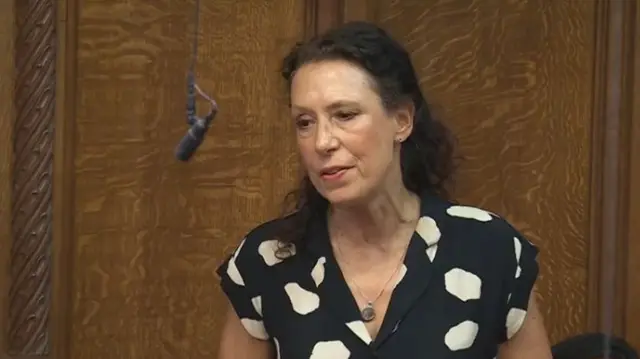New amendment aimed at blocking government's bill signed by 39 Labour MPspublished at 10:40 BST 1 July
 Henry Zeffman
Henry Zeffman
Chief political correspondent
Thirty-nine Labour MPs have signed a new amendment designed to block the government's welfare policies.
Dame Meg Hillier has withdrawn her reasoned amendment which was at one stage supported by more than 120 Labour MPs.
But a replacement amendment has been tabled by fellow Labour MP Rachael Maskell.
That has attracted signatures from 39 Labour MPs overnight and 66 MPs in total. While a much smaller number than Hillier's amendment, it still suggests a sizeable Labour rebellion is likely today should a vote on the amendment take place.
It is not certain that Sir Lindsay Hoyle, the Commons Speaker, will select the amendment for a vote.
